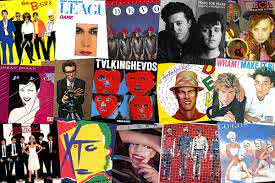new wave
US /nuː weɪv/
UK /njuː weɪv/

名詞
1.
ニューウェーブ
a genre of rock music that emerged in the late 1970s, characterized by its diverse styles, often incorporating elements of punk, pop, and electronic music, with a focus on synthesizers and a more polished sound than punk.
例:
•
Many bands from the 1980s are considered new wave.
1980年代の多くのバンドはニューウェーブと見なされている。
•
Her favorite music is new wave from the late 70s.
彼女のお気に入りの音楽は70年代後半のニューウェーブだ。
2.
ヌーヴェルヴァーグ, ニューウェーブ (映画)
a movement in cinema, particularly in France (Nouvelle Vague) in the late 1950s and 1960s, characterized by experimental techniques, unconventional narratives, and a rejection of traditional filmmaking conventions.
例:
•
French New Wave films often feature jump cuts and direct address to the camera.
フランスヌーヴェルヴァーグの映画は、しばしばジャンプカットやカメラへの直接語りかけを特徴とする。
•
The director's style was heavily influenced by the New Wave movement.
監督のスタイルはヌーヴェルヴァーグ運動に強く影響を受けていた。
同義語: